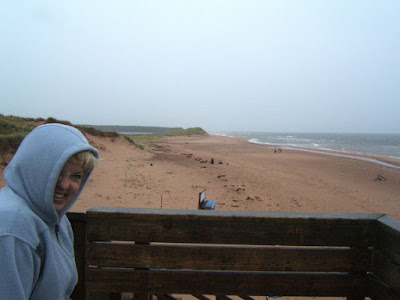Last month, I launched my North of the Border guest series blog—with myself as my first guest. New ventures can be daunting, especially if you overthink as much as I do. That's why I chose myself as my first guest (aka test subject/guinea pig). I prodded and poked my thoughts until I got them corraled. Until I knew what I wanted—a blog series for anyone (Canadian or not) who has ever found inspiration in something Canadian (be it good, bad, or somewhere in-between).
And now I have my first real guest! As you'll see below, Alice Valdal makes blogging look easy. She has a wonderful way with words. Alice and I met ten years ago when I moved to Victoria and joined the Vancouver Island Romance Authors.
Where does Alice get her inspiration? How is Canada part of her inspiration? Read on and see...
~ * ~
Thank you, Jacqui, for inviting me to your blog – and for creating a North of the Border corner. I’m thrilled to be part of it.
You asked me to share any particularly Canadian influences on my writing. There are so many it’s hard to know where to start. So, as Maria Von Trapp said, “let’s start at the very beginning.” The beginning of my reading/writing life included Anne of Green Gables. That is practically a cliché among Canadian women writers, I know, but I was a super fan. I read all of the Anne books – from Green Gables to Rilla of Ingleside. Then I read the “Emily” books, then I drove my small town librarian nuts demanding more and more of Lucy Maud. I read every stand-alone novel I could get my hands on, like Jane of Lantern Hill and Kilmeny of the Orchard. Like I said—total fan girl.
Some time ago, I was able to visit Prince Edward Island and do the “Anne” pilgrimage.
While there we caught the tail end of hurricane Hugo so the Babbling Brook was a
muddy torrent
and the path through the haunted wood was more like a mud slide.
Despite the storm, I managed to walk on the beach, just as Anne did in Anne’s House of Dreams.
Re-reading the Anne books now from the point of view of an author, I’m struck by how Montgomery was able to add conflict and tension to very small, domestic situations. Our age is wired to high concept, high stakes – e.g. the fate of the planet, the survival of the human species, lots of explosions and high-speed chases. The trials of a little orphan girl with red hair and a plain name don’t even appear on the scale. And yet . . . Montgomery’s “Anne with an e,” is deeply embedded in our collective conscience. Why? Because she made us care. A century after the book was published, we still care, as witnessed by the many re-imaginings of the story--a musical play, a movie, several televisions series and now video games.
I believe it is because of the characters. LMM created interesting, complex characters that appeal to all ages, across the years. Any school child can relate to the taunts Anne suffered over her hair, her freckles, her lack of family. She is the ultimate underdog, and who doesn’t cheer for the underdog? And who doesn’t relate to a child desperately wanting a place to call home?
Home is one of the most powerful motivators in human experience. It’s a concept I use in my own stories. All of the heroines in my Prospect Series are seeking a home. Lottie, the outcast, clings to Pine Creek Farm and fights any who would take her home from her. Emma, torn between her new life in Prospect and the old one in San Francisco, finally finds her true home with Grey North. Louisa, setting out to make her own way in the world, adds a lean-to to her shop and furnishes it with a few bits and pieces, fulfilling her desire to have a home of her own. A threat to “home” makes for powerful conflict.
Home can mean a place, a state of mind, a physical region, or an ache in the heart. Where do you call “home?” Where is your favourite place in Canada?
Home can mean a place, a state of mind, a physical region, or an ache in the heart. Where do you call “home?” Where is your favourite place in Canada?
I’d love to see your answers. Leave a comment for a chance to win a free e-copy of The Man for Her, the first in the Prospect Series. BTW, Prospect is a fictional town, just as Avonlea is fictional.
~ * ~
Alice Valdal is a traditional and indie published author. Her books include the Prospect series, collections of Christmas short stories, and one long ago contemporary romance.
She blogs most weeks at www.alicevaldal.com/blog.
She is very fond of cats.
~ All pictures (except for the 1st) are supplied by today’s guest with their assurance of usage rights









